

A dental emergency can be a scary, painful time for you. At DFW Implant Center, we know that you want quick relief, and we’re here to deliver it. Did you know that periodontists like Dr. Farhad E. Boltchi can handle many emergency dental situations thanks to their advanced training in dental implant placement, gum infections, and other soft tissue conditions? When possible, Dr. Farhad and our team will clear our schedule to provide expert-level emergency treatment that same day.
From the commonplace to the complex, we can offer a broad range of emergency dentistry services in Arlington, TX. Learn more by dialing 817-663-4704 if you’re a new patient or 817-467-7731 if you’re current.
We offer a variety of emergency dentistry treatments at DFW Implant Center.
A dental emergency refers to a situation involving the teeth, gums, or surrounding tissues that requires immediate attention from a dental professional. These emergencies can result from various causes, such as trauma, severe pain, infection, or sudden damage to the teeth or oral structures. Prompt action is crucial in dental emergencies to alleviate pain, prevent further damage, and address potential complications.
Emergency dentistry refers to the specialized branch of dental care that addresses urgent and immediate dental issues that require prompt attention and treatment. The goal of emergency dentistry is to provide timely intervention to alleviate pain, prevent further damage, and address urgent oral health concerns. Dr. Boltchi can provide a variety of emergency dentistry services based on your needs at the time.

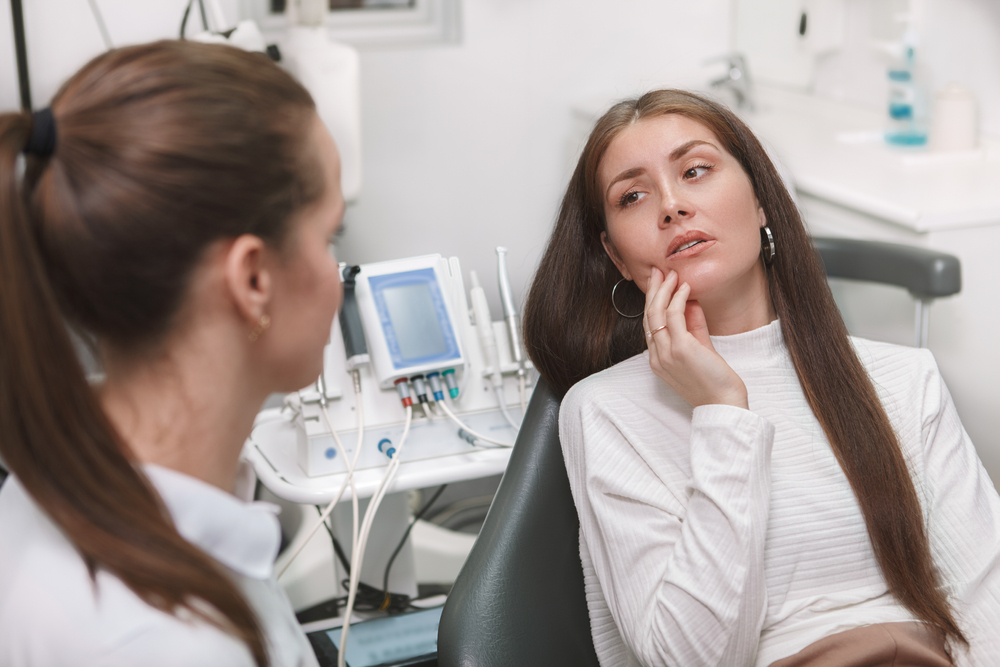

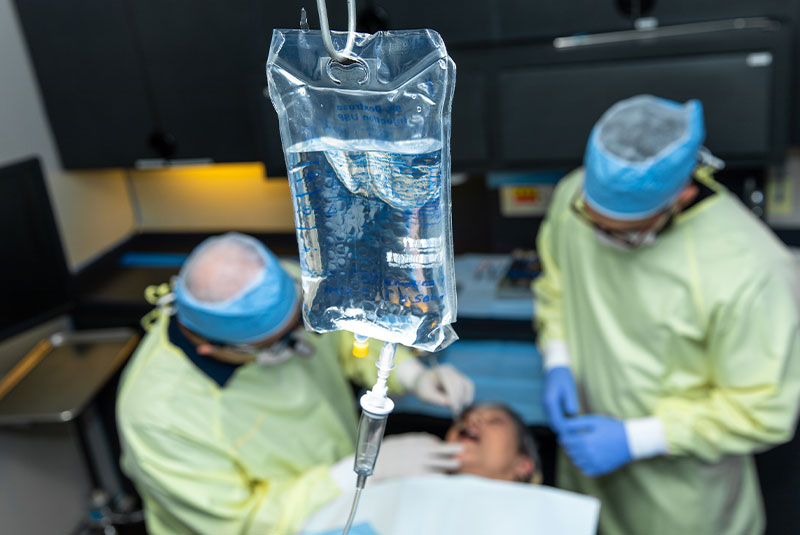
Making you comfortable and helping you heal are always our top priorities.
Our treatment rooms are equipped with modern dental technology that enables us to provide you with quick, accurate diagnoses, and prompt care. To make you more comfortable, we can offer one or more types of sedation while you’re undergoing treatment.
In addition, our entire facility and array of equipment are fully compliant with the Centers for Disease Control (CDC) and American Dental Association (ADA) standards of sterilization for your complete health, safety, comfort, and peace of mind. Our team wears all required personal protective equipment (PPE) while performing any examination or procedure.
Acute tooth pain can be caused by various factors such as tooth decay, infection, or injury. To alleviate pain temporarily, rinse the mouth with warm water, gently floss to remove any debris, and take over-the-counter pain relievers as directed. Avoid placing aspirin directly on the tooth or gums.
For a broken or cracked tooth, rinse the mouth with warm water, apply a cold compress to reduce swelling, and see a dentist promptly. If a tooth is knocked out, handle it by the crown (not the root), rinse it gently, and try to place it back in the socket. If that’s not possible, store it in milk or saliva and seek immediate dental care.
In the event of a broken jaw, stabilize the jaw by securing it in place with a bandage or cloth, and then support the lower jaw with your hands to prevent movement. Apply a cold compress to reduce swelling and seek emergency medical attention from your Arlington periodontist or your local emergency clinic. Emergency healthcare providers can help stabilize your jaw until you can see Dr. Boltchi for more specialized care. Avoid attempting to realign the jaw yourself, as improper handling can lead to further complications.
If you lose a dental crown or filling, it’s important to protect the exposed tooth. Avoid chewing on the affected side, and if possible, try to place the crown back over the tooth using dental cement or temporary adhesive available at drugstores.
If the crown cannot be reattached, keep it in a safe place and schedule an appointment with your dentist as soon as possible. In the meantime, avoid hot or cold foods and beverages to prevent sensitivity.
If a dental implant feels loose, avoid putting pressure on it. Rinse the mouth gently with warm water, and see an emergency dentist promptly for evaluation and potential stabilization of the implant.
Swelling around a dental implant may indicate an infection such as peri-implantitis. Rinse the mouth with a warm saltwater solution and avoid hot or cold foods. Seek emergency dental care at our Arlington dental office as soon as possible. Dr. Boltchi can perform LAPIP to clear the infection and attempt to save the implant.
If you experience swollen or bleeding gums, rinse your mouth with warm saltwater, gently floss to remove debris, and avoid irritants like tobacco. If bleeding persists, apply a cold compress and consult with Dr. Boltchi as soon as you can for further evaluation.
A periodontal or gingival abscess is a localized and often painful accumulation of pus within the gum tissues. This type of abscess typically occurs as a result of an infection in the space between the teeth and gums, known as the periodontal pocket. The infection can arise from bacteria entering the pocket due to gum disease, dental plaque buildup, or injury to the gum tissue.
Symptoms of a periodontal or gingival abscess may include swelling, redness, tenderness, and throbbing pain in the affected area. In some cases, there might be the presence of a pimple-like bump on the gum that contains pus.
If you believe you have a periodontal abscess, rinse your mouth with warm saltwater, and avoid squeezing or popping the abscess. Seek emergency dental care at DFW Implant Center for proper drainage and treatment.
A subgingival root fracture is a type of dental injury where a fracture occurs below the gumline, involving the root of a tooth. This fracture is not visible externally and is often challenging to diagnose without dental imaging, as the damage is concealed beneath the gums.
Common causes of subgingival root fractures include traumatic injuries to the mouth, such as direct impact or force on the tooth. Symptoms may include pain, mobility of the affected tooth, and possible bleeding or swelling around the gumline. However, these signs might not always be immediately apparent.
For this kind of dental emergency, avoid putting pressure on the affected area. Rinse your mouth gently with warm water and see an emergency dentist for evaluation and potential stabilization of the fractured root.
If you experience broken braces, begin by assessing the damage. Rinse your mouth with warm water to provide temporary relief if wires are poking. Use orthodontic wax to cover any broken or protruding parts, which can help prevent irritation and discomfort.
Contact Dr. Boltchi promptly, saving any loose pieces, and avoid attempting DIY repairs. Take over-the-counter pain relievers as needed, stick to a soft diet, and schedule an appointment for professional repairs to ensure the uninterrupted progress of your orthodontic treatment.
For broken dentures, avoid attempting DIY repairs as this can lead to further damage. Instead, gather any broken pieces and schedule an appointment with Dr. Boltchi for professional assessment and repair. In the interim, refrain from wearing the damaged dentures to prevent irritation or discomfort.
Your Arlington periodontist will be able to determine the extent of the damage and offer appropriate solutions. If your dentures can’t be properly restored for comfortable use, Dr. Boltchi may recommend replacements such as full-mouth dental implants or fixed zirconia bridges, which can improve your oral health and help prevent incidents that could lead to breakage in the future.
Oral lacerations refer to cuts or tears in the soft tissues of the mouth, such as the lips, tongue, or inner cheeks. These injuries can result from accidents, trauma, or biting down on a hard object. Clean the wound with warm water, apply gentle pressure with a clean cloth or gauze to control bleeding, and use a cold compress to reduce swelling. Seek immediate dental or medical attention at our Arlington, TX, dental office for proper cleaning and closure of the laceration.
If something becomes lodged between your teeth, use dental floss or an interdental brush gently to try and dislodge the object. Do not use sharp objects such as scissors or knives to attempt to remove the object, as this can result in damage to your teeth, gums, and tongue. If you cannot gently remove the object yourself, contact DFW Implant Center as soon as possible for help getting it out.
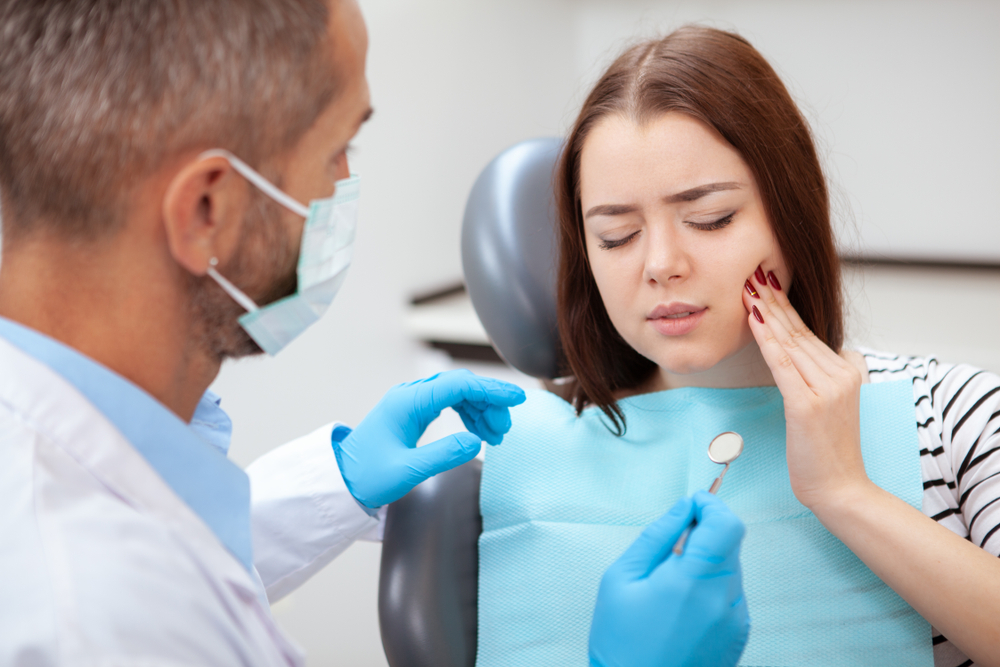

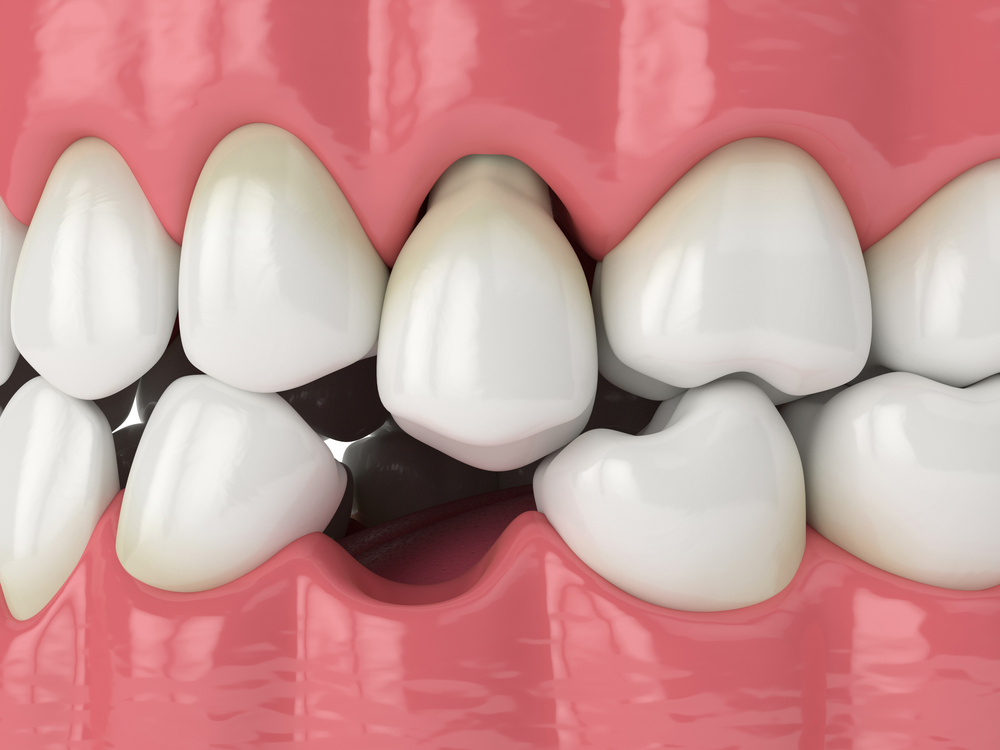
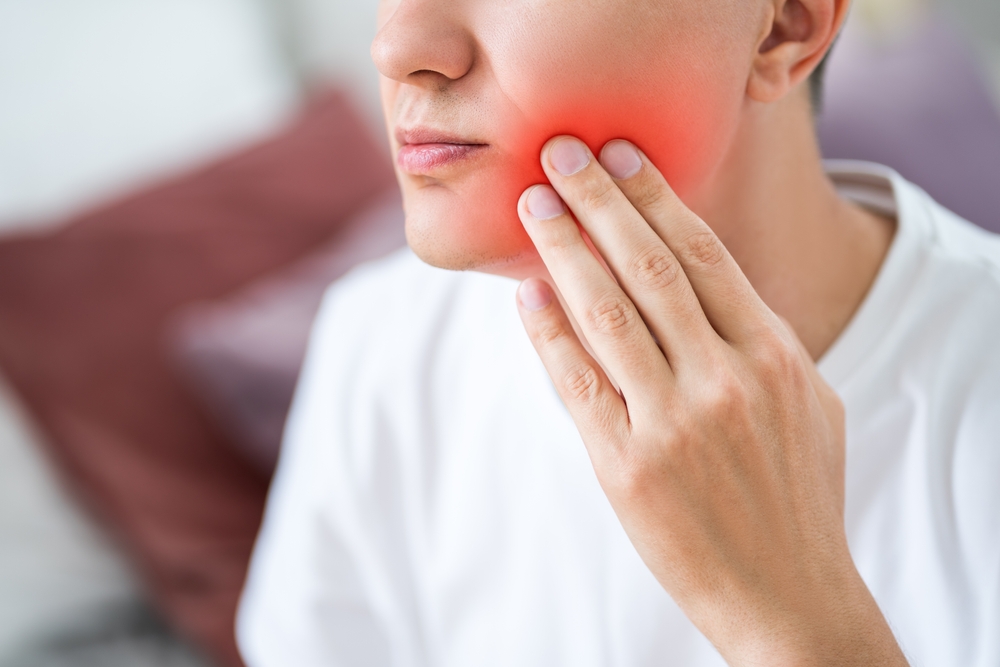
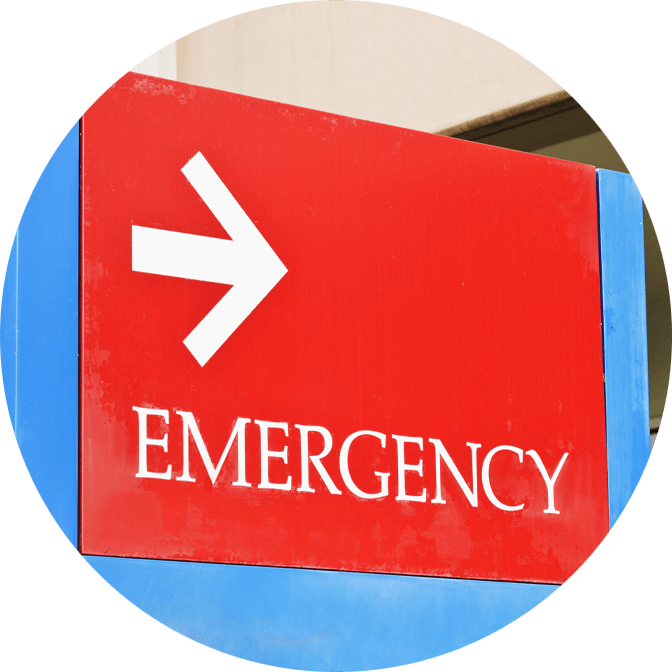
Yes, you can take over-the-counter pain relievers as directed to alleviate tooth pain temporarily. However, it’s important to consult with an emergency dentist for a proper diagnosis and long-term solution.
If you experience a dental emergency while traveling, seek local dental care or visit the nearest emergency room. Contact your regular dentist for guidance and to schedule follow-up care upon your return.
Coverage for emergency dentistry varies based on your dental insurance policy. While many plans include coverage for emergency dental services deemed necessary for immediate health, the extent of coverage can differ. Check your insurance policy for details on the types of emergency procedures covered and any pre-authorization requirements.
Contact your dental insurance provider for specific information, and dental offices can assist in verifying coverage and providing details on how emergency dental services are handled under your plan.
If you accidentally swallow a dental crown or filling, it is typically considered safe as these restorations are typically made of materials that are non-toxic and designed for use in the mouth. However, it’s important to contact your dentist to discuss the situation. They can provide guidance based on the specific type of crown or filling, and whether any follow-up care or replacement is necessary.
While ingesting a crown or filling is generally not a cause for immediate concern, consulting with your dentist ensures a thorough assessment of the situation and appropriate advice for your specific case.
Facing a dental emergency in Arlington, TX? Count on DFW Implant Center for prompt relief. Dr. Farhad E. Boltchi, our accomplished periodontist, and our team are dedicated to delivering swift and expert-level emergency dental treatment.
New patients can call 817-663-4704, while existing ones can dial 817-467-7731 to schedule an appointment and receive immediate attention for their dental needs. We’re proud to serve patients from Arlington and surrounding areas such as Irving, Fort Worth, and Grapevine, TX.
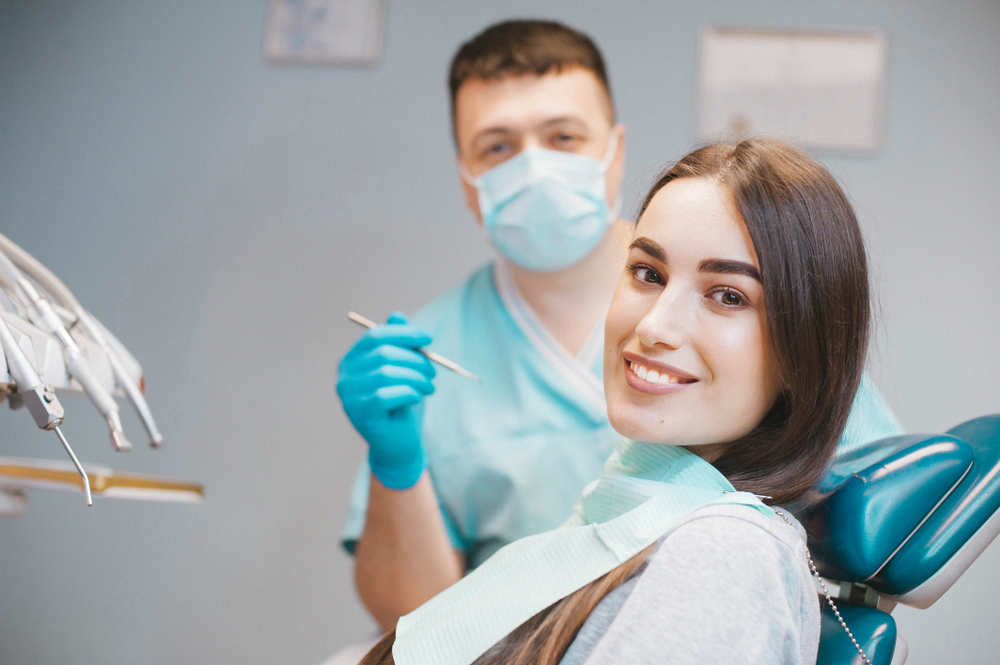
I understand the information disclosed in this form may be subject to re-disclosure and may no longer be protected by HIPAA privacy regulations and the HITECH Act.

800 West Arbrook Blvd
Suite 360 Arlington, TX 76015